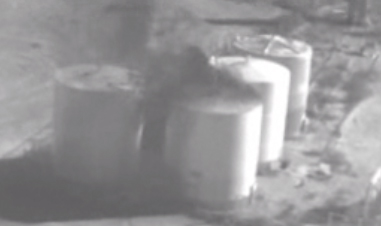As Big Gas Battles EPA over New Air Rules, Local Control Looks Better and Better
 The new oil and gas air toxics rules that over a hundred people came out to support this last summer at an EPA hearing in Arlington are under heavy fire as they’re getting closer to getting implemented. These are rules, that for the first time would clamp down on the Volatile Organic Compounds (VOCs) released by gas drilling that cause smog, toxic air pollution and make global warming worse. EPA recently announced a two-week delay in their being brought on line and there’s a campaign by industry to gut the rules entirely by limiting their scope in a ridiculous way. Sharon has all the details in how you can urge the EPA to get a backbone and go through with their modest reforms, and The Hill has a good article explaining the effort to roll back the rules. Whether these rules are implemented in their original form or not, the struggle over their creation and scope argues for why more local governments should be looking at regulating these emissions through the lens of Greenhouse Gas pollution (GHG), as Downwinders and others are suggesting Dallas do in its new gas drilling ordinance. Lack of federal and state action on GHG pollution allows local governments to fill in the gap and level the playing field to reduce air pollution that would otherwise fall through the cracks and loopholes of current law. Even if the new EPA rules were to come on stream in their original form, they still wouldn’t cover 70-75% of the VOC emissions causing so many problems. This is why local governments must act out of self-defense. In this case, no other level of government is making sure that new gas pollution doesn’t contribute to already bad regional ozone problems, doesn’t blow open a city’s commitment to reducing its carbon footprint, as Dallas has pledged to do under the 2005 Mayor’s Climate Change Agreement, and doesn’t poison a city’s neighborhoods. If the as industry was treated like other industrial polluters, it would have to mitigate or “off-set” these air pollution increase with air pollution decreases elsewhere in the same area. Gas operators do not have to do this. Local regulation could make them. It could force gas operators to decrease air pollution as much as they increase it in Dallas by paying for projects that reduce the same kind of GHG pollution as they emit. It would also act as a automatic incentive for the gas operators not to release as much air pollution to begin with – stopping it before it starts. EPA is not going to save the residents of the Shale from the gas industry. They’e got to do that themselves. Here’s a way that could help.
The new oil and gas air toxics rules that over a hundred people came out to support this last summer at an EPA hearing in Arlington are under heavy fire as they’re getting closer to getting implemented. These are rules, that for the first time would clamp down on the Volatile Organic Compounds (VOCs) released by gas drilling that cause smog, toxic air pollution and make global warming worse. EPA recently announced a two-week delay in their being brought on line and there’s a campaign by industry to gut the rules entirely by limiting their scope in a ridiculous way. Sharon has all the details in how you can urge the EPA to get a backbone and go through with their modest reforms, and The Hill has a good article explaining the effort to roll back the rules. Whether these rules are implemented in their original form or not, the struggle over their creation and scope argues for why more local governments should be looking at regulating these emissions through the lens of Greenhouse Gas pollution (GHG), as Downwinders and others are suggesting Dallas do in its new gas drilling ordinance. Lack of federal and state action on GHG pollution allows local governments to fill in the gap and level the playing field to reduce air pollution that would otherwise fall through the cracks and loopholes of current law. Even if the new EPA rules were to come on stream in their original form, they still wouldn’t cover 70-75% of the VOC emissions causing so many problems. This is why local governments must act out of self-defense. In this case, no other level of government is making sure that new gas pollution doesn’t contribute to already bad regional ozone problems, doesn’t blow open a city’s commitment to reducing its carbon footprint, as Dallas has pledged to do under the 2005 Mayor’s Climate Change Agreement, and doesn’t poison a city’s neighborhoods. If the as industry was treated like other industrial polluters, it would have to mitigate or “off-set” these air pollution increase with air pollution decreases elsewhere in the same area. Gas operators do not have to do this. Local regulation could make them. It could force gas operators to decrease air pollution as much as they increase it in Dallas by paying for projects that reduce the same kind of GHG pollution as they emit. It would also act as a automatic incentive for the gas operators not to release as much air pollution to begin with – stopping it before it starts. EPA is not going to save the residents of the Shale from the gas industry. They’e got to do that themselves. Here’s a way that could help.
